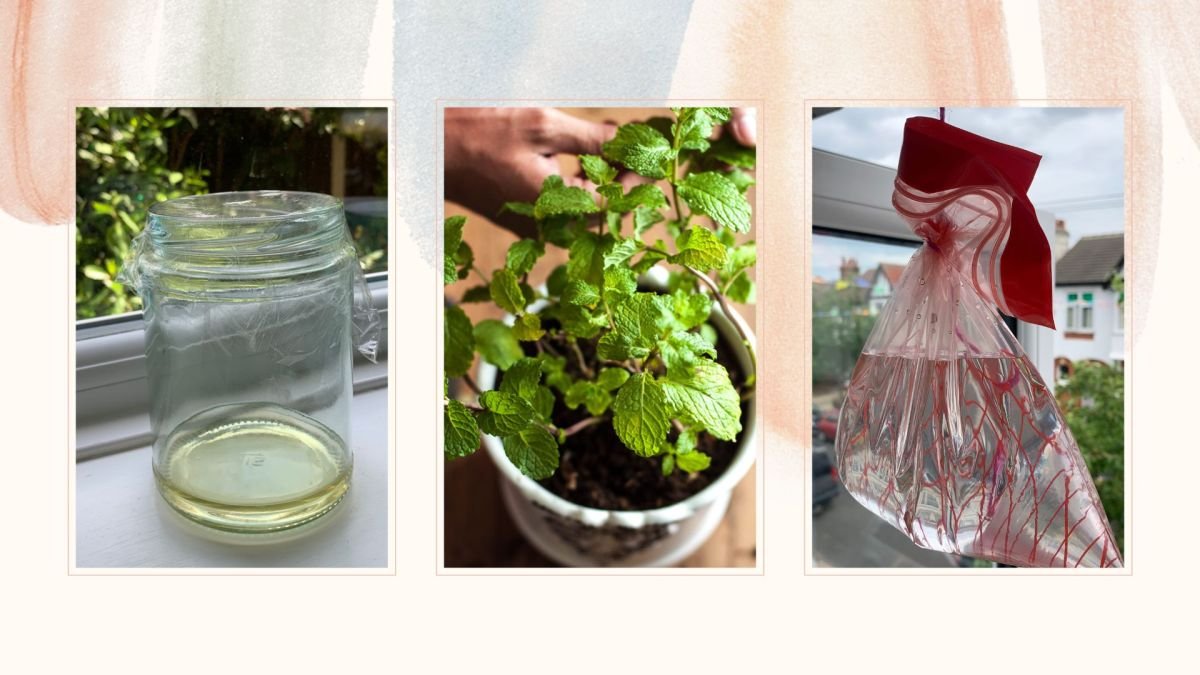
[ad_1]
Discover how to get rid of flies in the house easily and naturally, so that you can let the cool air in this summer but keep unwanted flies and bugs out.
Not only are flies in your house annoying, constantly buzzing around you, and driving pets to distraction, but they are also incredibly unhygienic to have landing on surfaces, especially in areas where you prepare food.
At this time of the year when you’re trying to cool down rooms without an ac and therefore keeping the windows open, flies will inevitably find a way in at some point. So it’s worth adopting these natural and harmless solutions to get them out of the house and keep them out.
Because like when trying to keep ants away or keep wasps at bay, natural solutions are always the preferred methods where you can.
How to get rid of flies in the house: 7 natural ways
When it comes to getting rid of house flies, prevention is key. “For starters, you should avoid attracting them in the first place,” Kameliya Ilieva, pest control specialist for Fantastic Services tells woman&home.
“Flies are most drawn by a smell or light. So, naturally, if you clean your home often, avoid leaving food in the open, clean the kitchen after cooking, and avoid leaving lights on when opening windows or doors, far fewer flies will be interested in your home”
“Also, we should say that using pesticides or insecticides to get rid of flies in your home is unnecessary,” says Kameliya. “There are far better, completely harmless, and eco-friendly ways to eliminate these pests.” Discover six such solutions below.
1. Make a harmless trap with apple cider vinegar
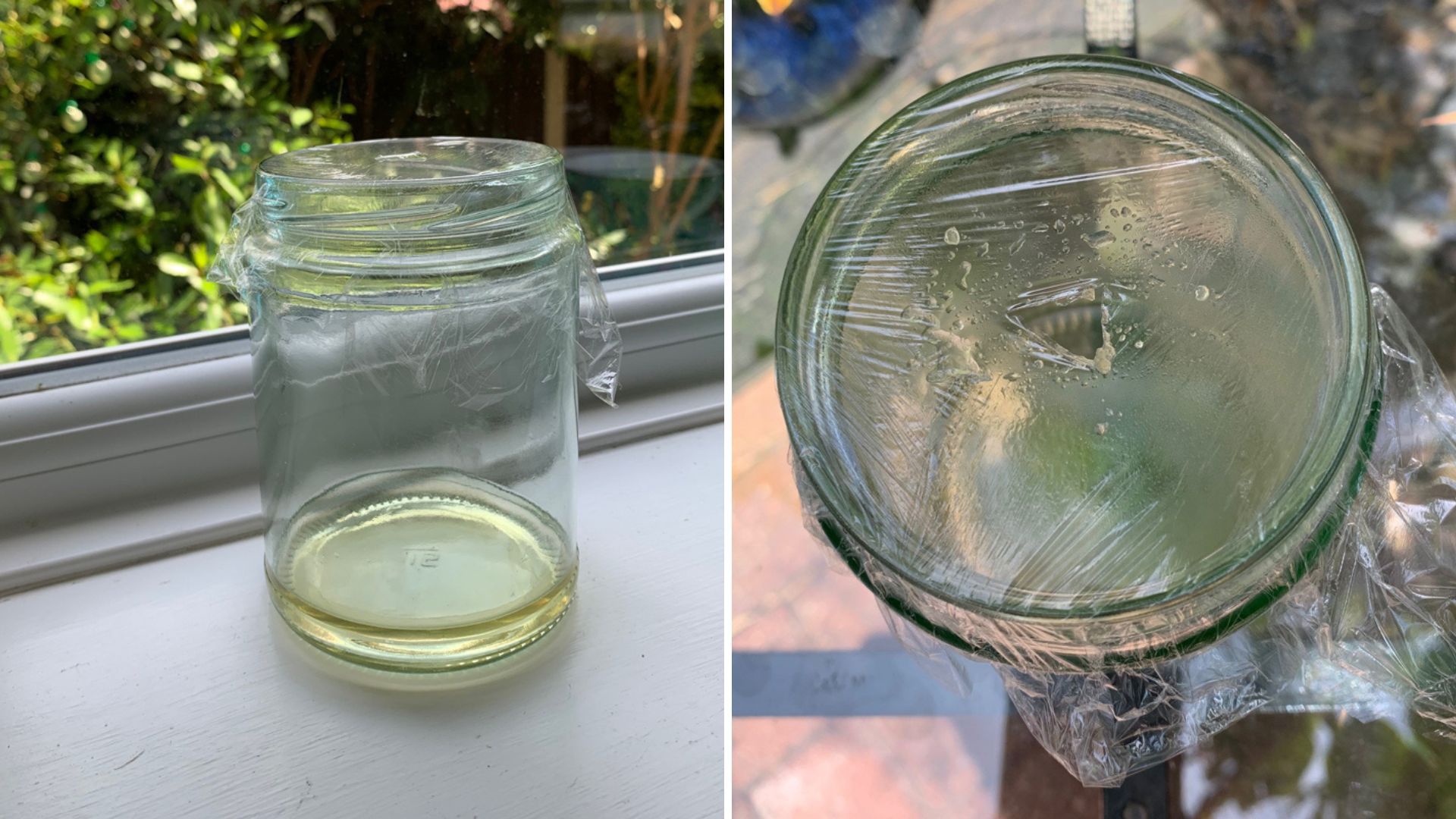
Tamara tried this apple cider vinegar method to get rid of flies in her house.
(Image credit: Future)
Flies are renowned for their love of sweet things, which is why you’ll find them in the kitchen by the fruit bowl. They are drawn to apple cider vinegar for this very reason, making it the ideal natural remedy to get flies out of the house.
Making this simple trap doesn’t harm flies, it merely contains them so you can set them back free in the garden and keep them out of your house.
We can confirm this simple idea does work, and it offers a humane way to get rid of the pests.
What you’ll need:
- Apple cider vinegar
- Empty jam jar or glass
- Clingfilm
- Scissors
How to make a harmless DIY fly trap:
- Pour a small amount of the apple cider vinegar into the empty glass or jar, just enough to fill approximately an inch from the bottom.
- Cover the top with cling film to create a clear lid that won’t deter them from approaching the trap.
- Next, pierce a small hole in the top of the film lid using the scissors, one that’s large enough for a fly to get in but not so big that it can then escape with ease.
- The allure of the sweet vinegar will draw the fly into the glass via the hole, but once in there, it will be trapped because of the film above. When it becomes trapped you can simply take the jar outside and remove the cling film to set the fly free.
- Pull the cling film lid back over the top and put the trap back inside again to get rid of the next fly that ventures into your house.
2. Try the simple water and coin hack
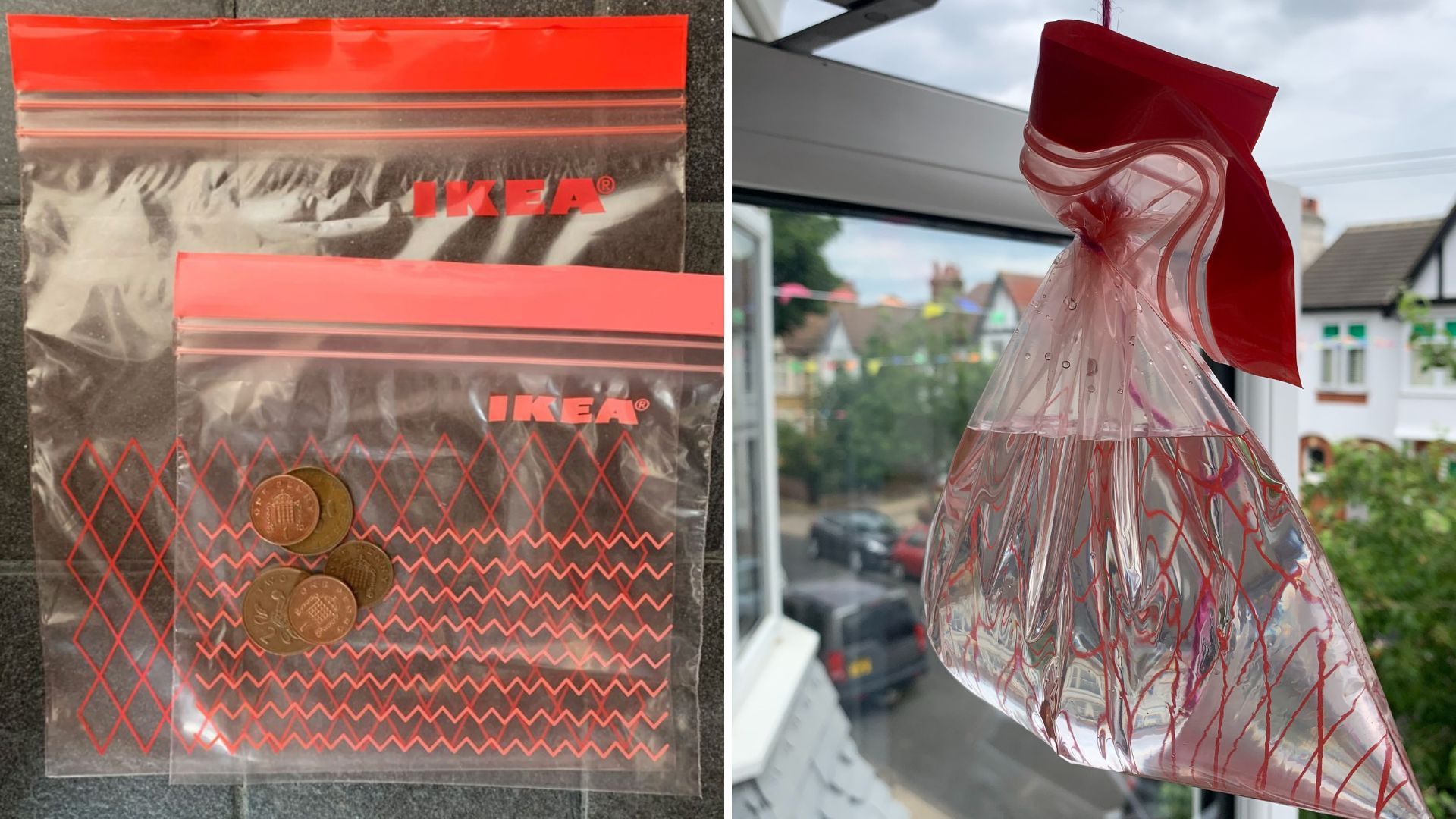
Tamara also tested the water and coin hack to see if it would deter flies.
(Image credit: Future)
This water and coin trick became a firm favorite a few years ago on social media when cleaning forums were filled with praise for this simple yet seemly effective fly deterrent.
The simple trick uses water to repel flies from entering the house. So how does it work? It’s really quite simple, working on the basis that flies have compound vision, meaning that their two eyes are essentially the equivalent of thousands of eyes so they see vast multiples of everything. The bag of water is multiplied in a fly’s eyes and will therefore appear to be a bigger body of water to repel them from approaching.
The coins inside are added to create a prism of color via the reflection of the water to add to the effect, to overwhelm the fly’s eyes to stop it from approaching an open window.
Having tried this method we can attest it did appear to ward flies off from entering through the open windows, but of course, it won’t work after dark.
What you’ll need:
- 1 x Clear sandwich/freezer bag
- A length of string
- Several small coins
- Water
How to make a DIY fly deterrent:
- Half fill the clear bag with water, drop in five or six coins to sink to the bottom and seal tight.
- Cut a length of string to tie the bag securely to hang inside the window frame – we suggest tying to the handle of a top-opening window or suspending it from the blind or curtain pole above a side-opening window. The bag needs to be hung to ensure the light can pass through and capture the reflections of the coins inside.
3. Put plants near the windows

(Image credit: Getty Images / Westend61)
Mint and basil are commonly thought of as scents that flies dislike, meaning their presence acts as a simple repellent. If you have herb plants indoors, place the pots near the open windows in an attempt to stop flies in their tracks from crossing the threshold.
“Flowers can be the best repellent of them all,” suggests Kameliya. “Nature knows how to deal with pests and has provided us with several herbs and flowers to prevent them from entering our homes.
“Just place some basil, marigold, lavender, bay leaves, or catnip around windows and doors. They will not only keep insects at bay but also beautify your surroundings.
If you don’t have plants indoors but have a patch of mint or basil in the garden, pull a bunch of leaves and pop them in a glass to act as a vase and pop that by the window instead. “You can also plant them in your garden to keep insects even further away,” adds Kameliya.
4. Use essential oils

(Image credit: Getty Images / Microgen Images /Science Photo Library)
Spritz a room with essential oils such as lemongrass or peppermint or use an essential oil diffuser to repel flies in an instant. These natural fragrances give off a strong smell that instantly deters flies from entering your home.
Luckily there are plenty of household sprays and also aromatherapy candles containing essential oils to make it easy to fill every room in the house with an unattractive aroma to flies – but one that smells delightfully pleasant to scent your home. Fly-free and fragrant, what’s not to love about this natural method?
You could also try the viral cleaning hack of soaking cotton wool balls in your essential oils to emit a further scent that repels flies with ease.
5. Keep your bin smelling fresh with baking soda
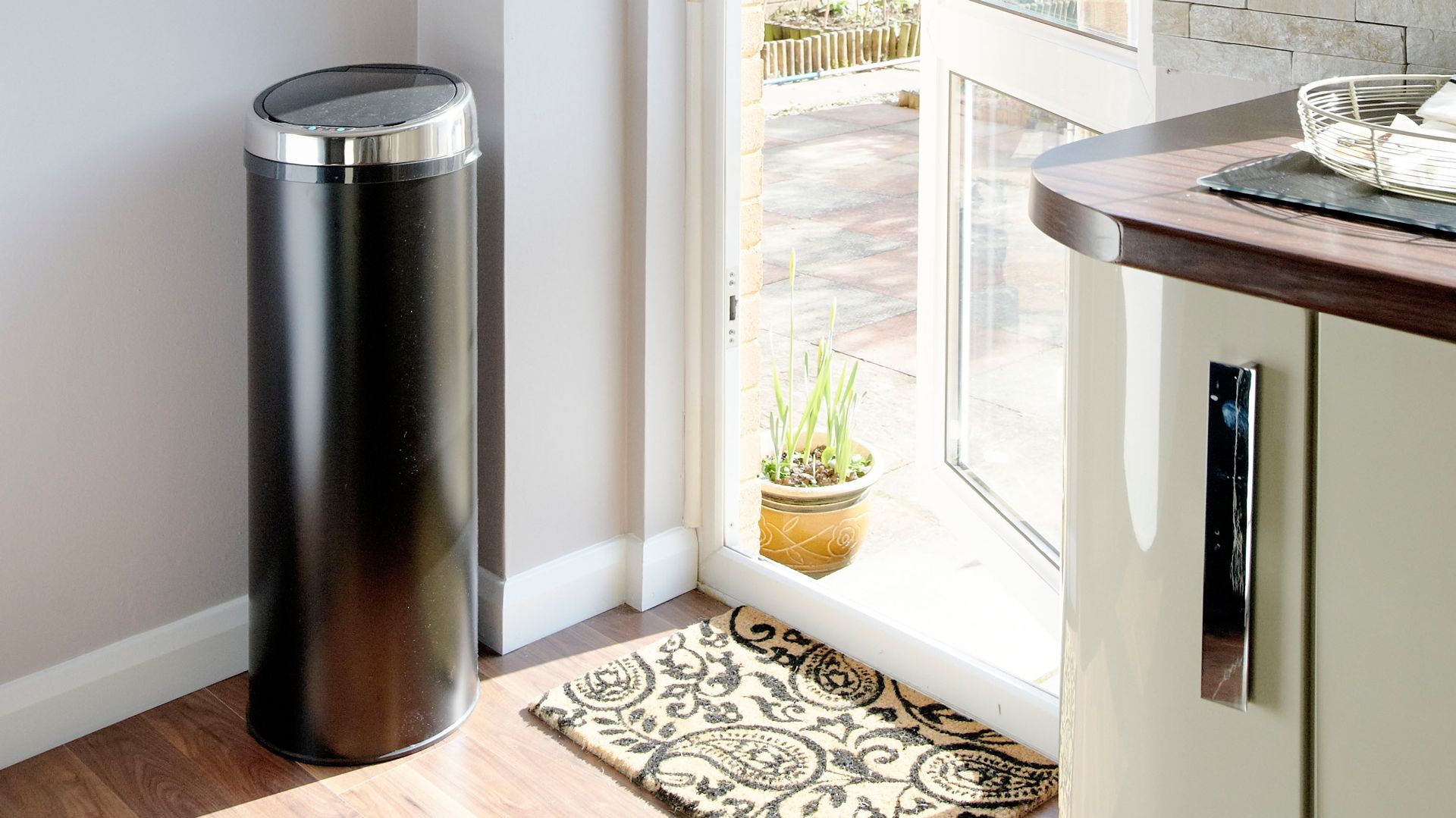
(Image credit: Future)
Keep your bin smelling sweet to deter flies from coming inside to explore what treats await them at the bottom of the bin. Flies feast on decaying food waste and sugary substances, making the best kitchen bin an irresistible temptation. Keeping your kitchen bin clean and smelling fresh can eradicate the problem before it starts, as we discuss in our guide on how to get rid of fruit flies.
A simple trick to keep the bins fresh is to sprinkle a small helping of baking soda directly onto the bottom of your bin before placing a bin bag in. This will help to catch any moisture should anything spill from the bin bag once it’s in use while subtly scenting the bin in the meantime.
6. Burn citronella candles
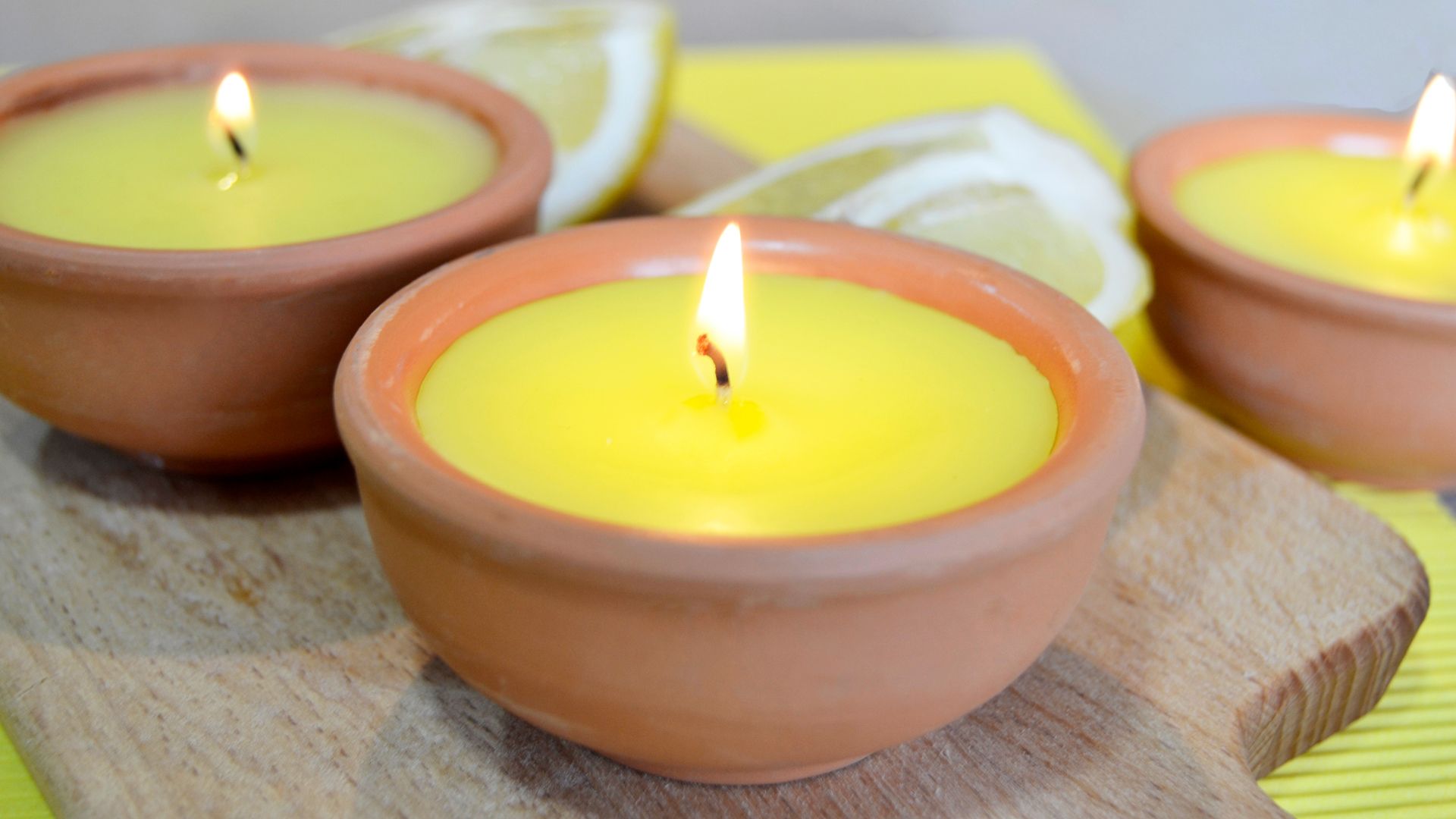
(Image credit: Getty Images / Blanchi Costela)
Citronella candles are renowned for their abilities to ward off flying pests and they are often touted as the best scented candles for the garden to keep mosquitoes away. But they are a good natural way to deter flies also.
“Another way to prevent flies from entering your home is using citronella candles or scents. They do work, but only in a limited space, so you need to have a citronella candle for every window and door you are going to open,” says Kameliya.
7. Invest in protective screens
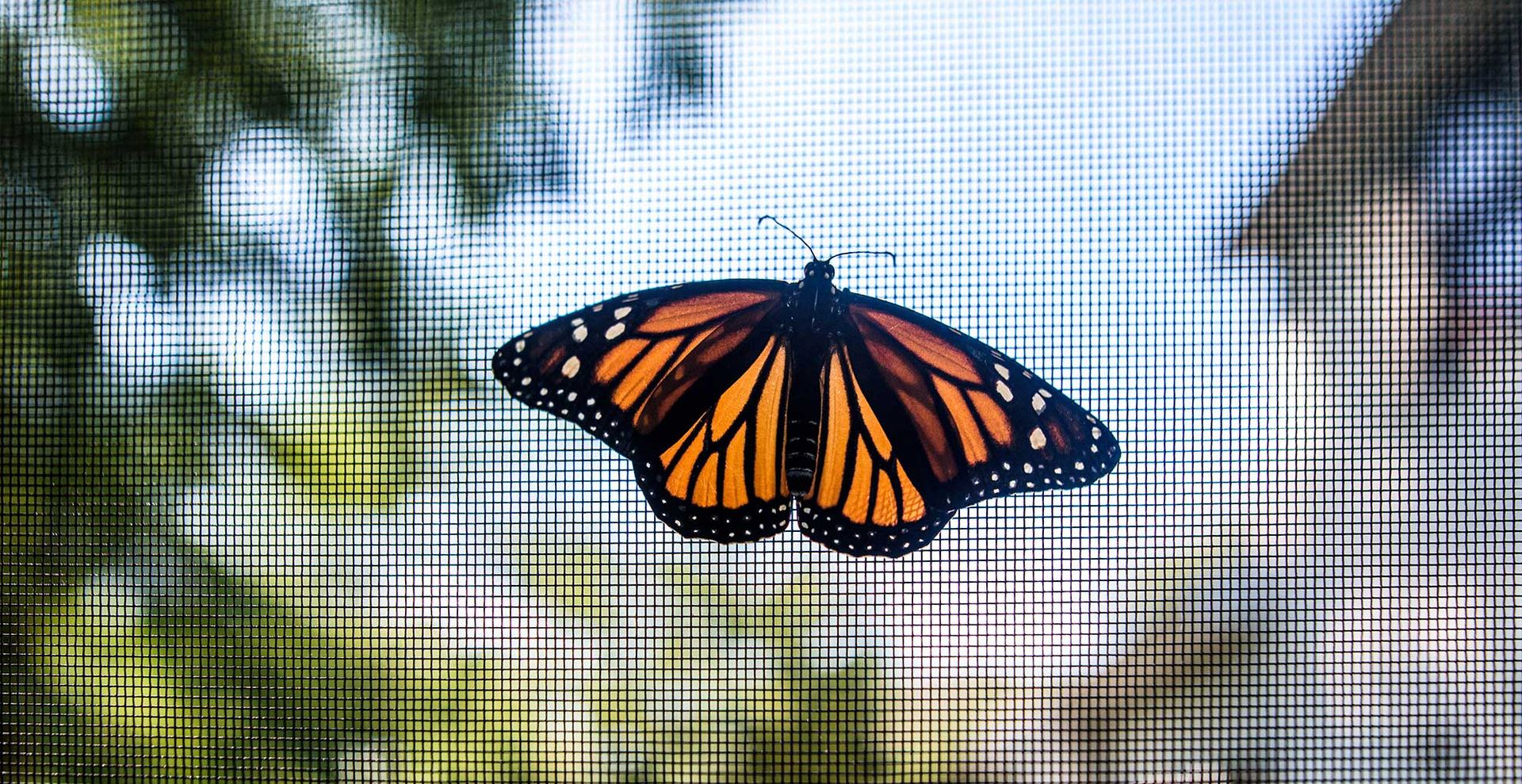
(Image credit: Getty Images | Cavan Images)
Another way to keep flies out of the house is to cover open doors or windows. “Invest in a fly screen door or mesh curtain to protect your home from flies with ease,” suggests Jordan Foster, a pest control expert at Fantastic Pest Control. This solution allows you to leave the windows and doors open and not be quite so restrictive with having food out on the counter inside the house.
This might not be the most aesthetically pleasing solution for your stylish home but these protective covers do ensure the pesky flies can’t find their way in even if they tried.
While natural methods are a suitable solution for how to get flies out of the house on the odd occasion, if you have an infestation it might be time to call in professional pest control.
“All the above methods are viable only if you fight against an occasional fly that enters your household. If you have a constant and significant fly population, you’d need to call an expert to deal with the problem,” explains Kameliya.
“The main task is to find the source of the infestation. Before calling a professional, though, you need to check if all your windows and doors are undamaged and that there are no holes from which flies can enter. The point of entry might be some eroded seal around doors or windows or cracks in the walls,” suggests Kameliya. “If you’ve taken care of all these factors and you still have a fly problem, calling a professional is unavoidable.”
Why do I suddenly have flies in my house?
It might feel like flies appear suddenly at this time of year but it’s no coincidence as to why they are more prevalent in the summer months. Here are several things that can cause flies to suddenly appear in your house at this time of the year.
The first is the heat, it means that we are more likely to keep doors and windows open much more than we ever would. “Flies can enter your home through open doors and windows, especially if you live in an area where they are prevalent,” explains Jordan Foster, a pest control expert at Fantastic Pest Control. “Your house may have gaps or openings that allow flies to enter.” Consider some of the natural ways to repel them from entering via the windows.
“Also if there is uncovered or decaying food in your home, it can hold a lot of attraction for flies,’ says Jordan. “Food should be stored in sealed containers and spills should be cleaned up immediately. The presence of garbage and organic waste attracts flies. Uncovered or improperly sealed garbage cans can become breeding grounds for flies,” Jordan warns.
“Flies are also attracted to areas with moisture and dampness. Look for leaks or standing water in your house, as these can attract flies,” Jordan advises. “Leaks should be fixed immediately and areas prone to moisture should be ventilated properly.”
There are certain plants and flowers that attract flies, particularly if they produce sugary substances, so it’s worth a check to see if your indoor plants are the problem and are attracting flies.
“It is also possible that flies are breeding near or in your house,” says Jordan. “They lay eggs in rotting fruit, compost piles, or pet waste that is moist and decaying. Identify and eliminate potential breeding sites in and around your property.”
[ad_2]
Source link






